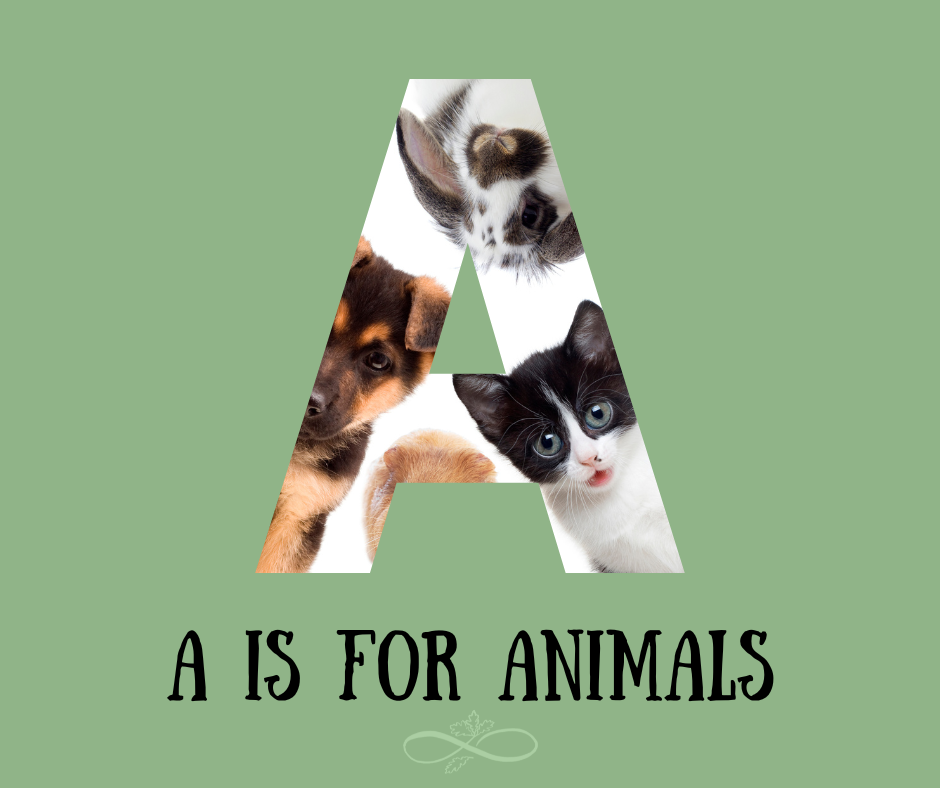Animals are the focus of this second A-Z of Grief. For the first, click here. I think there are two things to talk about here; how animals teach us about death and the death of pets. Off we go…
Animals and Life Cycles
One of the first ways many of us become aware of mortality, is from animals. We may have watched a nature show, or that very famous film about lions, which introduce the idea of a circle of life.
Very young children can consider that some animals live longer that others, that they often eat each other and that it’s all natural and acceptable. Animals give an insight into life cycles. If you have read the Hungry Catepillar to children, then you’ve probably had a discussion about how short butterfly lives are.
Most children will study life cycles of animals at primary school. What children may not do is join any dots to human life cycles. However, it’s a starter for ten to conversations along those lines. It’s probably the first time they will use words like birth and death.
Death of a Pet
Animals are also, often, the first experience people will have of the death of a loved one. Pets can be a precious addition to any family, but they rarely live longer than their owners. Most of the best loved pets for small children have very short lives. You might want to consider that when choosing…
Pets can be the first grief, funeral or memory making that we remember. Their impact can be a powerful precursor to the complexities of grief. What we also need to be mindful of is that this doesn’t only affect children.
Losing a Pet as an Adult
The death of a pet can be more devastating than some people. It will depend on the length of time they have been with us, the daily routines we have built and the affection we give and receive.
People often make apologies for feeling the death of a pet too keenly, but there should be no need to feel guilty about a deep bond with another sentient being. Part of pet ownership is accepting that you are responsible for the health and wellbeing, and potential end of life care, for that animal.
While we euthanise animals and not people (a whole ‘nother topic), making those decisions on behalf of a beloved pet can be traumatic.
Animals as Support
I’ve just considered a third animal point. I know many bereaved people who have found comfort and companionship from a new pet. While we are all advised not to make life changing decisions during grief, there can be a whole host of benefits from rehoming an appropriate pet:
- Company – if suddenly alone for long periods an animal can provide companionship.
- Wellbeing – having to feed/walk/clean etc. for another being can be the necessary spur to get up each day.
- Health – if you become very isolated, then having a pet that requires a walk or regular contact of any kind forces you to go outside. Even the very reserved ‘morning’ between dog walkers can be enough to feel connected to humanity.
- Affection – an animal small enough and furry enough to be cuddled can provide affection, we talk to them and spoil them and feel loved.
- Focus – a being that you are responsible for and that relies on you for it’s wellbeing gives you a focus and daily routine that can be hard to find in grief. A pet might be very grounding.
Please consider a homeless pet before paying a lot for a purposely bred one. There are too many unwanted animals in the world already.

